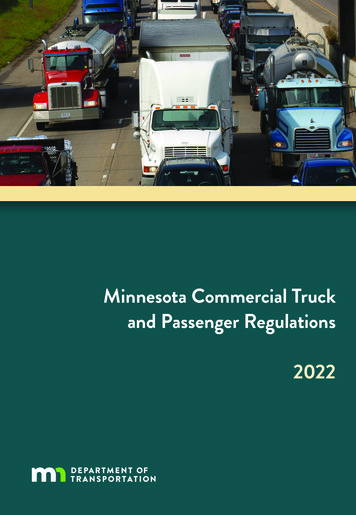
Transcription
Minnesota Commercial Truckand Passenger Regulations2022
Quick Reference Phone ListHighway Emergencies911Traffic and Road Conditions511Minnesota Department of TransportationGeneral InformationToll FreeOffice of Freight and Commercial Vehicle OperationsOversize/Overweight PermitsSeasonal Spring Road Restriction InformationToll 00651-366-5400800-723-6543Minnesota Department of Public SafetyMinnesota State PatrolAnnual Commercial Vehicle InspectionCommercial Vehicle EnforcementVehicle ServicesCommercial Driver’s License (CDL)Hazardous Materials Spill (State Duty Officer)Toll FreeVehicle Registration/Fuel Tax AgreementSchool Bus 029Minnesota Department of AgricultureLivestock Dealer LicensingPesticide and Fertilizer Management Division320-808-4424651-201-6121Minnesota Department of RevenuePetroleum Division651-296-0889U.S. GovernmentFederal Motor Carrier Safety Administration - St. PaulLicensing and Insurance - Washington D.C.Hazardous Materials SafetyInternal Revenue Service - Twin CitiesToll FreeU.S. Customs - Metro (Cargo Crossing)Canadian Customs (Boarder 12-8082800-829-1040612-725-3689204-983-3500
Table of ContentsSection 01Driver’s Checklist 7Section 02Vehicle Registration and Licensing 9Intrastate Registration Requirements 10International Registration Plan 11Free Zone/Reciprocity Agreements 18IRP and IFTA Record Keeping Requirements 20Audit 22Section 03Maximum Vehicle Dimensions 25Section 04Weight Limitations 29Section 05Oversize/Overweight Permits 35Section 06Types of Intrastate Carriers & Obtaining and MaintainingMinnesota Intrastate For-Hire Operating Authority 41Private Carriers 42For-Hire Carriers 42Exempt Carriers 42Motor Carriers of Property 44Household Goods Carriers 45Building Movers 46Motor Carriers of Passengers 47Limousine Permit 48Special Transportation Service 50Section 07Obtaining Interstate For-Hire Operating Authority 53Unified Carrier Registration Program 54Section 08Driver Qualification Rules 57General Requirements 59Physical Qualifications for Drivers 60Driver Medical Waivers and Skills Performance Evaluation 62Driver Qualification File - DQ File 65Section 09Controlled Substances and Alcohol Testing 67Section 10Commercial Driver’s License 75Classes of Driver Licenses 76Commercial Driver’s License Endorsements 78
Section 11Driver’s Hours of Service 83Carriers Not Subject to Hours of Service Rules 84Short Haul Provision 88Record Retention 89Section 12Vehicle Inspection, Repair, and Maintenance 91Daily Vehicle Inspection Report 96Minnesota Annual Vehicle Inspection Program 97Roadside Inspections 99Out-Of-Service Vehicles 99Section 13Accident Countermeasures and Accident Reporting 101Section 14Record Keeping Requirements 103Section 15US DOT Number 111Vehicle Identification Requirements 112Section 16Insurance Requirements 115Section 17Hazardous Materials Regulations 117USDOT Hazardous Materials Registration Program 118Hazardous Materials Communications 119Shipping Papers and Emergency Information 119Marking and Labeling 119Placards 120Hazardous Materials Transportation Security 120Hazardous Materials Employee Training 120Materials of Trade 120Transportation of Gasoline in Fueling/Contractor Driving/Parking/Inspection During Hazardous Materials Transportation 121Section 18Minnesota Agency Directory 127Section 19Definitions 131Section 20Internet Resource List 137
IntroductionMinnesota Trucking Regulations1
IntroductionMotor carrier regulations can be complex. Your responsibilities extend beyondyour business operations to the condition of your vehicles and the actionsof your drivers and employees. That’s why we have developed this guide. Itexplains the basic requirements to operate as a motor carrier in Minnesota, aswell as additional resources to assist you.What we doThe Office of Freight and Commercial Vehicle Operations (OFCVO) goalis to advance highway safety by working with providers of commercialtransportation to improve and enhance the safety of their operations.We accomplish this by focusing our resources primarily on at-risk carriers andshippers who pose the greatest threat to highway safety. We partner withother local and federal agencies and industry groups to meet our safety goals;we make safety performance the main criteria in issuing operating credentialsto motor carriers, and we work to streamline regulations and make ourbusiness functions more efficient.OFCVO is responsible for implementing, administering, and enforcingMinnesota laws and federal regulations. These laws govern carriers offreight and passengers, private carriers hauling their own products, carrierstransporting oversized and overweight loads, hazardous material andhazardous waste transporters, special transportation providers of the elderlyand disabled, and for-hire limousine operators.OFCVO works closely with the United States Department of Transportation’sFederal Motor Carrier Safety Administration (FMCSA) in administering andenforcing motor carrier laws and regulations. With support from FMCSA,OFCVO investigators conduct on-site investigations and reviews of interstatecarrier and shipper records and determine whether the carrier or shipper hasadequate safety controls in place. If not, a carrier or shipper can be consideredunfit, which may lead to severe penalties up to and including a shutdown of itsoperations.OFCVO works with the Minnesota Departments of Public Safety and HumanServices when assessing the operational fitness of providers of specialtransportation to the elderly and disabled. Specific criteria on vehiclestandards and driver qualifications help ensure these providers are offeringthe safest transport possible to this vulnerable segment of Minnesota citizens.2
In cooperation with the Minnesota State Patrol’s Commercial VehicleEnforcement Section, OFCVO conducts safety inspections on intrastatepassenger vehicles to ensure they comply with applicable vehicle safetystandards, and monitors whether the carrier has made the necessary repairswhen violations have been found. OFCVO and the State Patrol’s CommercialVehicle Enforcement Section also provide training and technical assistance tomotor carriers, drivers and shippers. This technical outreach helps operatorsbetter understand the regulations so that all highway users can benefit from asafer transportation environment.Public Education and OutreachWe provide online resources on what is required to legally operate as amotor carrier or driver in Minnesota. Visit our education website for availableresources at ml.Additional Information SourcesState and federal statutes and rules govern your operations. For specificregulatory details, consult these references: Minnesota Motor Vehicle and Traffic Laws, including Motor CarrierLaws, (Minn. Stat. Chapters 168, 169, 170, 171, 174, 221, and 296). Minnesota Department of Transportation Motor Bus and Truck Rules(Minnesota Rules Chapters 7800, 7805, 8840, 8850, 8855, 8860, 8870,and 8880). Federal Motor Carrier Safety Regulations, Code of Federal Regulations,Title 49 Parts 382, 383, 387, 390-397, and 40. Hazardous Material Transportation Regulations, Code of FederalRegulations, Title 49 Parts 100-185.The resources listed above are available on the internet, at Minnesota’sBookstore 651-297-3000 or 800-657-3757, and from private sources.3
The information published in this handbook does not change or override anycurrent statute, rule, regulation or policy of the State of Minnesota, or of anydepartment or agency. Nor does it relieve carriers of complying with currentlaw.Many sources were consulted in preparing this Minnesota Commercial Truckand Passenger Regulations handbook, and every effort has been made topresent the information accurately. It is intended only as a helpful guide to theapplicable laws and rules, not as a substitute for them. For specific questions,please refer to the laws and rules themselves. If you need an explanation orclarification of any law or rule, you should contact the appropriate agency.This handbook has been prepared and published by the MinnesotaDepartment of Transportation’s Office of Freight and Commercial VehicleOperations. If you have any comments or corrections to its content pleaseemail us at motorcarrier.dot@state.mn.us.4
Fellow Highway User:The Minnesota Department of Transportation’s Office of Freight andCommercial Vehicle Operations has prepared a handy reference guide tohelp you in your travels across the state. This book was prepared for theprofessional driver and carrier who transport property, passengers, orhazardous materials on Minnesota highways.Over the past few years there have been many changes in state and federalregulations that apply to you and to others who deliver goods and providetransportation services in Minnesota. We understand that changingtechnologies, vehicle standards, and regulations make it difficult to stay up-todate. This updated, comprehensive guide should help answer your questionsand concerns – we hope you find it helpful. It also contains telephonenumbers, addresses and website addresses of different agencies if you havemore specific questions. For an electronic version of this guide, please visitwww.mndot.gov/cvo/mntruckbook.By working together we can make our roads safe for everyone. Enjoy yourtravels through our beautiful state!5
Navigating a Single lane Roundabout in a Semi-Truck For multi-lane roundabouts, as with any Truck intersection, followguide signs to get into the appropriate lane prior to entering aroundabout. Yield to pedestrians in the crosswalk. It is the law. Yield to vehicles already in the roundabout. Continue through the roundabout until you reach your exit. Do notstop/pass, or change lanes after entering in a roundabout. Exit theroundabout immediately if an emergency vehicle approaches, andthen pull over. Do not stop in the roundabout. Use truck aprons as needed to traverse the roundabout.For more information on roundabouts, please visit MnDOT’s Roundaboutwebsite located at mndot.gov/roundabouts/ or visit the online Roundaboutbrochure at mndot.gov/roundabouts/pdfs/Roundabout Freight.pdf.Semi-truck makinga left turnCentralIslandOff-tracking ontruck apron6
Section 01:Driver’s ChecklistMinnesota Trucking Regulations7
Section 01Driver’s ChecklistAs a driver, do you have:9 A current, valid driver’s license for the vehicle being driven?See page 76 for information on driver’s license classifications andendorsements.9 A valid medical examiner’s certificate? See page 65 for information ondriver qualification issues.9 A copy of the vehicle’s registration? See page 10 for information aboutvehicle registration and fuel permits.9 A copy of the previous day’s daily vehicle inspection report?See page 96 for information about inspection reports.9 Proof of vehicle insurance? See page 116 for information on insurancerequirements.9 Driver’s record of duty status? See page 86 for information about hoursof service regulations.9 Proof of proper operating authority, if operating for-hire? See page42 for information about operating authority for for-hire carriers.9 The carrier’s U.S. DOT number displayed on your vehicle? See page112 for information about U.S. DOT numbers and vehicle markings.9 A copy of your U.S. DOT Hazardous Materials Certificate ofRegistration or other document showing your Registration number iftransporting hazardous materials? See page 118 for information aboutthe Federal Hazardous Materials Registration program.Your vehicle should have:9 Proper vehicle identification See page 112 for information aboutdisplay of company name and USDOT number.9 Proof of an annual inspection See page 97 for information about annualinspections.9 A fire extinguisher, extra fuses, and warning triangles See page 94 forinformation about emergency equipment.9 A properly secured load See page 94 for load securement information.8
Section 02:Vehicle Registrationand LicensingMinnesota Trucking Regulations9
Section 02Vehicle Registration and LicensingMinn. Stat. § 168.013, 168.187Intrastate Registration Requirements: Vehicles traveling exclusively withinMinnesota are required to display Minnesota-based license plates. Intrastatevehicles may be registered and plates obtained at any deputy registrar’s officelocated throughout the state. Registration fees are determined by the grossvehicle weight and model year of the vehicle. A USDOT number is required.For more information contact Driver and Vehicle Services at 651-297-2126 orvisit the website at https://dps.mn.gov/divisions/dvs/.Intrastate Bus PlateIntrastate Truck PlateOne-Ton Pickup Trucks for Non-commercial use (Minn. Stat. § 168.002):Effective August 1, 2011, legislation established a distinction in registrationand license plate display between commercial and non-commercial full sizeone-ton pickup trucks. Person declaring “personal/non-commercial use only”can register in the “Y” non-commercial truck class for registered weights of10,000, 12,000 and 15,000 pounds. There is no difference in the registrationtax amount; it is merely a plate designed to allow the owner to declare noncommercial use which is exempt from the USDOT number requirement. Theplate identifies the vehicle is a non-commercial truck.Non CMV Plate10
Heavy Vehicle Use Tax: All vehicles or combination of vehicles having aregistered gross weight over 54,999 pounds and traveling more than 5,000miles on public highways (7,500 miles for agricultural vehicles) are subjectto federal HVUT (IRS Form 2290, Schedule 1). Vehicles that travel less than5,000 miles on public highways (7,500 miles for agricultural vehicles) arestill required to file IRS Form 2290, but do not have to pay the tax. Proof ofpayment of HVUT (electronic verification or stamped copy 2290 schedule)must be submitted when a vehicle registration is renewed. When a vehicle isnewly purchased, payment of HVUT is due the last day of the month followingfirst use of the vehicle. For additional information, contact the MinnesotaInternal Revenue Service-HVUT office at 866-699-4096.International Registration Plan: Qualified registrants based in Minnesota whotravel in Minnesota and another IRP state or province must display IRP licenseplates and IRP cab card, or obtain valid trip permits for the state or provincein which they wish to travel. Registrants based in another IRP jurisdiction musthave IRP plates and their IRP registration cab card with the correct weight, ordisplay a valid Minnesota trip permit. The program allows the display of thebase state-apportioned license plate. The base state collects and distributesthe appropriate registration taxes for the respective states.Each IRP registrant is required to file an annual application with the basejurisdiction. The application lists the vehicles to be apportioned, the fleetmileage, and the declared gross weight for each jurisdiction. Mileage isreported from the previous July 1 through June 30. When all fees are paid,the registrant is issued a cab card and validation stickers for each vehicle.The cab card lists all IRP jurisdictions and the vehicles gross weight for eachjurisdiction.IRP Participating States and Provinces: All U.S. states except Alaska and Hawaii District of Columbia All Canadian Provinces except Yukon, Northwest Territories, andNunavut11
Qualified Vehicles: A qualified motor vehicle means any power unit that isused or intended for use in two or more member jurisdictions and that is usedfor the transportation of persons for-hire, or designed, used, or maintainedprimarily for the transportation of property and: Has two axles and a gross vehicle weight or a registered gross vehicleweight over 26,000 pounds; Has three or more axles regardless of weight; Is used in combination when the gross vehicle weight of thecombination exceeds 26,000 pounds; or A power unit involved in intrastate transportation outside the State ofMinnesota regardless of gross vehicle weight or axles.A power unit, or the power unit in a combination of vehicles having a grossvehicle weight of 26,000 pounds or less may be registered under the IRP at theoption of the registrant.Exempt Vehicles: The following vehicles are exempt from registering underthe IRP: Government-owned vehicles Recreational vehicles Vehicles operating under separate state reciprocity agreementsMinnesota Base State Requirements: Minnesota is the base state for thepurposes of fleet registration if the following conditions apply:1. The registrant has an established place of business in Minnesota thatmeets all of the following conditions: Physical structure located within Minnesota (building or office) ownedor leased by the registrant Street address (not a post office box) Open for business (list business hours) Vehicles will accrue miles in Minnesota Located within the physical structure: Permanent employee(s) of the registrant conducting theregistrant’s truck related business The operational records of the fleet and presented to the statewhen requested12
The following must be presented to obtain IRP registration: Articles of Business Incorporation (including certificate) issuedby authorized state agency Minnesota Secretary of State Certificate of Authority (requiredfor foreign state/province corporations) Ownership documents or Lease agreement records associatedwith the physical structure Written statement that the registrant has one or morepermanent employees listing major truck related job tasks2. The registrant is a Minnesota resident and does not have an establishedplace of business. Registrant must: Accrue miles in Minnesota Maintain operational records of the fleet in Minnesota and presentthem to the state when requested Remit three documents from either A or B listed belowAll documents shall be current and list registrant name and Minnesotaaddress.A: Individual Minnesota driver’s license card Federal income tax return (filed) Minnesota personal income tax records (paid) Minnesota property/state tax records (paid) Current utility billing statement issued within last 90 days (i.e. landlinephone, cable, gas, electric, water, etc.) Minnesota motor vehicle title or registration (in registrant’s name) Residential lease agreementB: Business Entity Minnesota driver’s license card (principal owner must be a Minnesotaresident) Minnesota Secretary of State Articles of Incorporation Federal income tax return (filed) Minnesota personal income tax records (paid) - please remove socialsecurity number before submitting to us Minnesota property/state tax records (paid)13
Current utility billing statement issued within the last 90 days (i.e.phone, cable, gas, electric, water, etc.) Minnesota motor vehicle title or registration (in registrant’s name) Residential lease agreementDocumentation Required for IRP Registration:1. Legal name2. Business address3. Phone number4. Actual miles traveled between July 1 and June 30. Example, forregistration year 2022 the mileage reporting year is July 2020 throughJune 2021.5. Gross vehicle weight for each jurisdiction6. Vehicle proof of ownership for new applicants and added vehicles.Proof of ownership may be any of the following items: ManufacturerStatement of Origin, Minnesota certificate of title, or an out of statetitle.7. USDOT and Federal Employee Identification number for each vehicle8. Copy of lease agreements for an owner-operator registering in his orher own name and leased to a carrier where the carrier is providingthe vehicle liability insurance and operating authority. If the vehicle isbeing registered in a name other than that of the titled owner, a copyof the lease agreement must also be provided.Display of Credentials: A valid annual registration cab card, temporarycredential, or trip permit must be carried in the vehicle at all times. Minnesotavehicle registrations under the IRP expire at 12:01 a.m. March 2. An IRPregistered vehicle may operate with a faxed temporary credential for 30 dayswithout displaying a registration plate.Interstate IRP Plate14Interstate Vehicle Cab Card
Electronic Image of Credentials: Carriers have the ability to carry IRP cabcards and IFTA licenses as an electronic image. Carriers will no longer berequired to carry a paper IRP cab card or IFTA license.All US States and Canadian Provinces will be required to accept electronicimages or IRP cab cards and IFTA licenses. When stopped by law enforcement,credentials may be shown as an electronic image on a computer, tablet, smartphone or as a paper copy. Regardless of the format, the document must beaccurate, accessible and readable by law enforcement.It is recommended to store the document as a PDF on an electronic device ineach vehicle to ensure access to documentation while in areas of no serviceor WiFi. If unable to provide proof of credentials, you may be subject to aregistration citation.Temporary Registration and Fuel Tax Permits: A vehicle owned and currentlyregistered by an out-of-state resident and not apportioned with Minnesota,may obtain a temporary Minnesota registration trip permit. The cost is 1/12 ofthe annual amount of registration tax imposed on trucks and tractors roundedto nearest whole dollar, plus a 11.00 filing fee, and is valid for 120 hours. Atemporary registration trip is limited to 1 permit every 30 days per vehicle. Atemporary fuel tax permit costs 25.00, and is valid for 120 hours.Temporary Weight Increase: For currently registered vehicles, registrantsmay increase the weight of a vehicle for more than 80,000 pounds. Foreach 30-day period, the additional tax is 4.17 per ton. A 11.00 filing fee isrequired for each request. When operating an oversize/overweight vehicle,the registrant is responsible for contacting and obtaining approval from eachlocal road authority (see Section 5). The weight increase does not replace anyrequirement for overweight authorization.30 Day Temporary Registration: A vehicle owned and currently registeredby an out-of-state resident and not apportioned with Minnesota may obtaina 30 day registration for the time period the vehicle will be temporarily usedfor interstate and intrastate travel. The registration fee is 1/12 of the annualfee based on the gross vehicle weight, and is available in 30, 60, and 90 dayincrements plus the 11.00 filing fee.International Fuel Tax Agreement: Minn. Stat. § 168.D. The IFTA is a basejurisdiction fuel tax program. The program allows carriers to file one fuelreport per quarter for all participating IFTA jurisdictions.15
The base jurisdiction collects the appropriate fuel tax and distributes the taxto the applicable IFTA states or Canadian provinces.Qualified Vehicles: The following vehicles are required to display fuelcredentials and report fuel use under the IFTA program if operating in two ormore member jurisdictions. A qualified motor vehicle means a motor vehicleused, designed, or maintained for transportation of persons and property,and: Power unit having two axles and a gross vehicle weight or registeredgross vehicle weight exceeding 26,000 pounds; or Power unit having three or more axles, regardless of weight; or Power unit used in combination when the weight of such combinationexceeds 26,000 pounds gross vehicle weight or registered grossvehicle weight.Recreational vehicles are exempt from IFTA fuel tax licensing and reporting.Display of Credentials: A legible photocopy or electronic image of the IFTAlicense must be carried in the cab of each qualified vehicle in the fleet. Twodecals are required per vehicle. Place one decal on each side of the exteriorportion of the cab. The original license should be kept with the businessrecords. The IFTA license and decal is valid for the current calendar year.The IFTA license is required to maintain a listing of the IFTA decal serialnumber assigned to each vehicle by recording the unit number and vehicleidentification number. DVS will use this data to review the licensee’saccountability of the IFTA decals. The number of decals purchased will bematched to the vehicles displaying the IFTA decal.Key dates:October 15 - annual renewal beginsNovember 1 - earliest display date of license and decals for next calendar yearDecember 31 - renewal filing deadlineNote: A two month grace period is allowed to display license and decals ifrenewed by December 31.16
IFTA Vehicle DecalIFTA LicenseIFTA Fees: Minnesota fees for license and decals: 28.00 Annual Fuel License Fee 11.00 Annual Filing Fee 2.50 per vehicle decal feeFuel Tax Quarterly Return: All licensees are required to file a quarterly IFTAfuel tax return with payment of fuel taxes. IFTA returns are filed on a quarterlybasis as follows:Reporting QuarterFiling Due DateJanuary 1 through March 31April 1 through June 30July 1 through September 30October 1 through December 31April 30July 31October 31January 31Exemptions: Under certain circumstances, carriers may be exempt fromobtaining an IFTA license and having to file fuel returns under the IFTAprogram. Carriers who qualify for an exemption must notify the DVS office inwriting. Exemptions include: A company that has an IFTA license in another state or is leased to acarrier that reports fuels tax; or A company operating 2-axle vehicles having a gross registeredweight of 26,000 pounds or less in each state where the company isregistered.Late Filing Penalties: Failing to file a fuel return, filing a late return, or forunderpayment of taxes due: A penalty of 50.00 or 10% of the net tax liability, whichever isgreater; and Interest on delinquent fuel taxes due to each jurisdiction.17
License Revocation: Operation of a qualified vehicle under revocation mayresult in a citation and fines. Minnesota law enforcement agencies andmember IFTA jurisdictions will be notified of any revocation. There is a 100.00 reinstatement fee to reinstate a revoked IFTA license.The IRP and/or IFTA license may be canceled, suspended, or revoked for thefollowing reasons: Failure to file an IFTA quarterly tax returnFailure to pay delinquent IRP or IFTA taxes in any jurisdictionFailure to maintain and follow record keeping requirementsFailure to pay or appeal an audit assessment within the establishedtime period Failure to comply with all applicable provisions of the MinnesotaStatutes and the IRP and IFTA Agreements Improper use of the license or decalFree Zone/Reciprocity Agreements: Minnesota has entered into reciprocityagreements with border states regarding registration requirements. Theseagreements allow Minnesota intrastate plated vehicles (MN Y class, farm classand buses) to travel a limited distance into a border state without an IRP orIFTA license.Reciprocity is not extended to intrastate operation except for Minnesota andNorth Dakota farm
Commercial Driver's License (CDL) 651-297-5029 Hazardous Materials Spill (State Duty Officer) 651-649-5451 . Licensing and Insurance - Washington D.C. 800-832-5660 Hazardous Materials Safety 800-467-4922 . By working together we can make our roads safe for everyone. Enjoy your
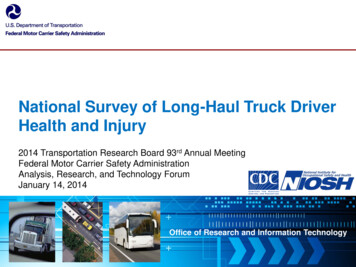

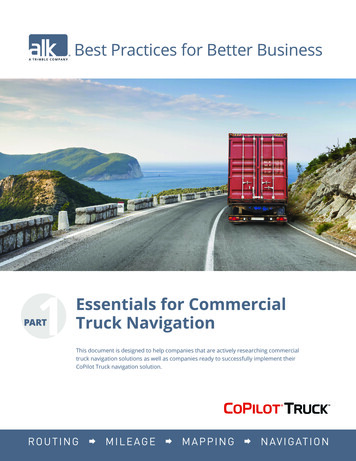

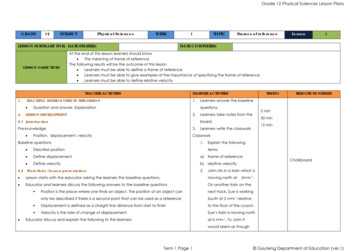
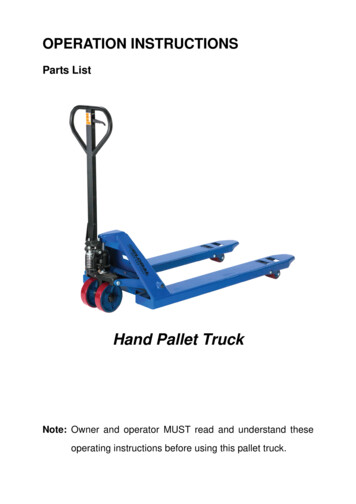

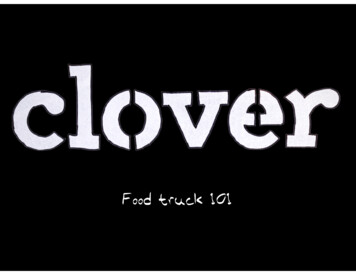
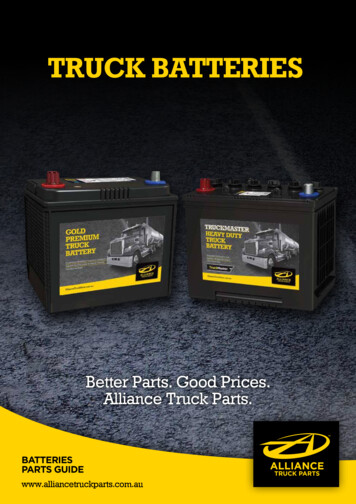
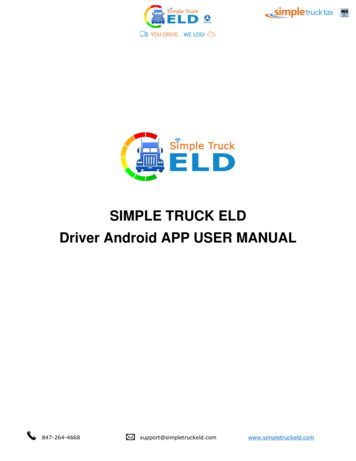
![Chap3 Airline Economics[2] - George Mason University](/img/36/chap3-airline-economics-5b2-5d.jpg)
